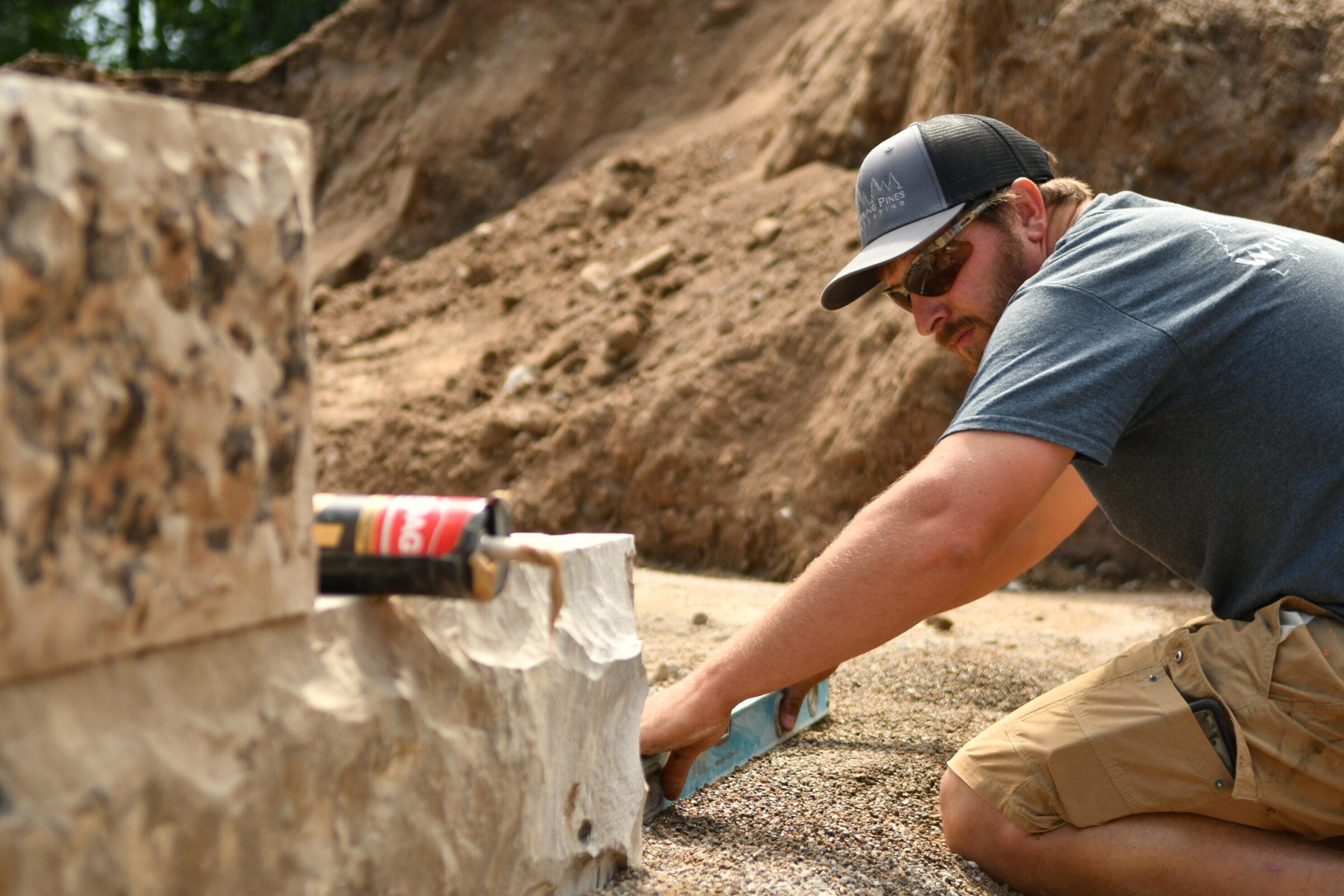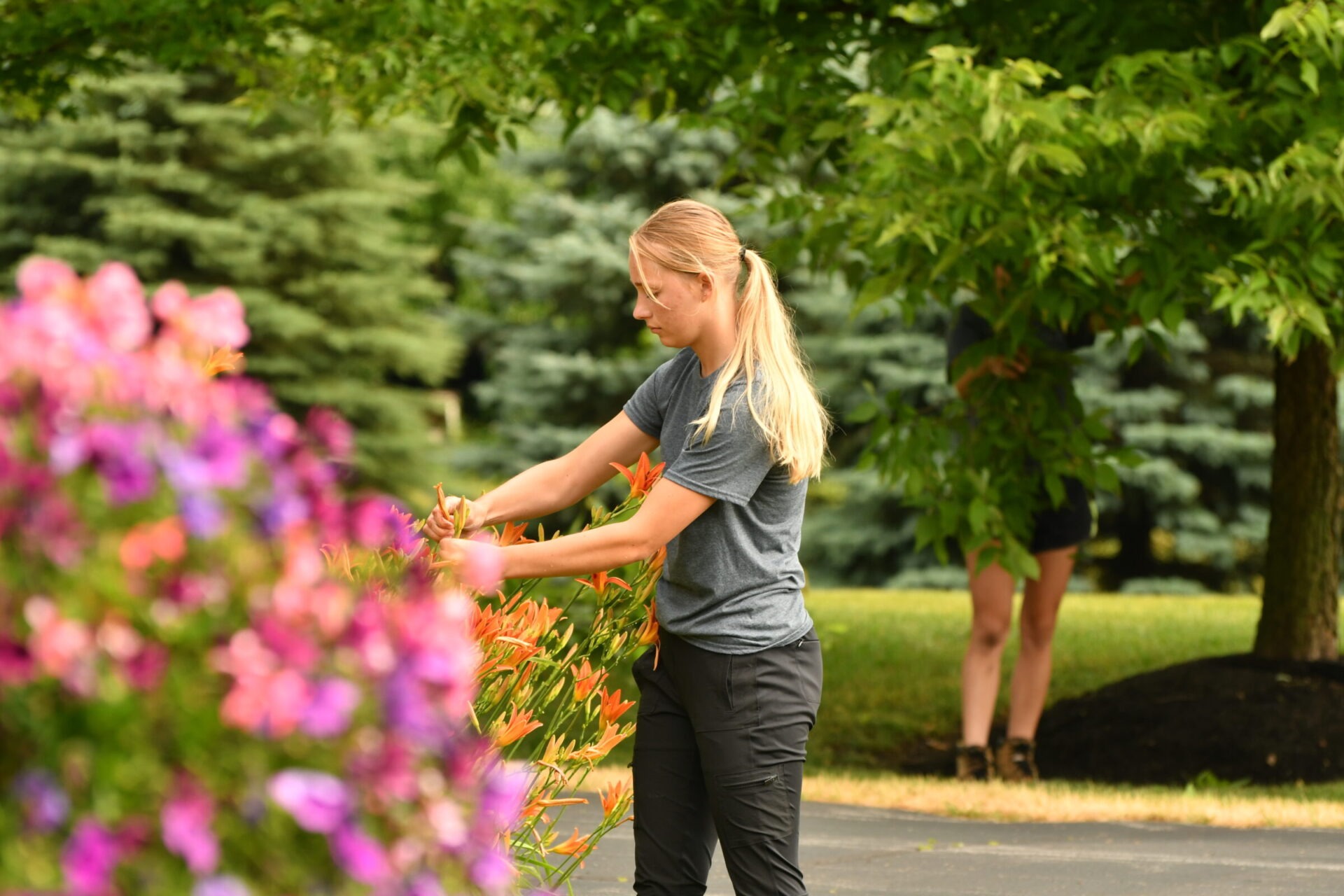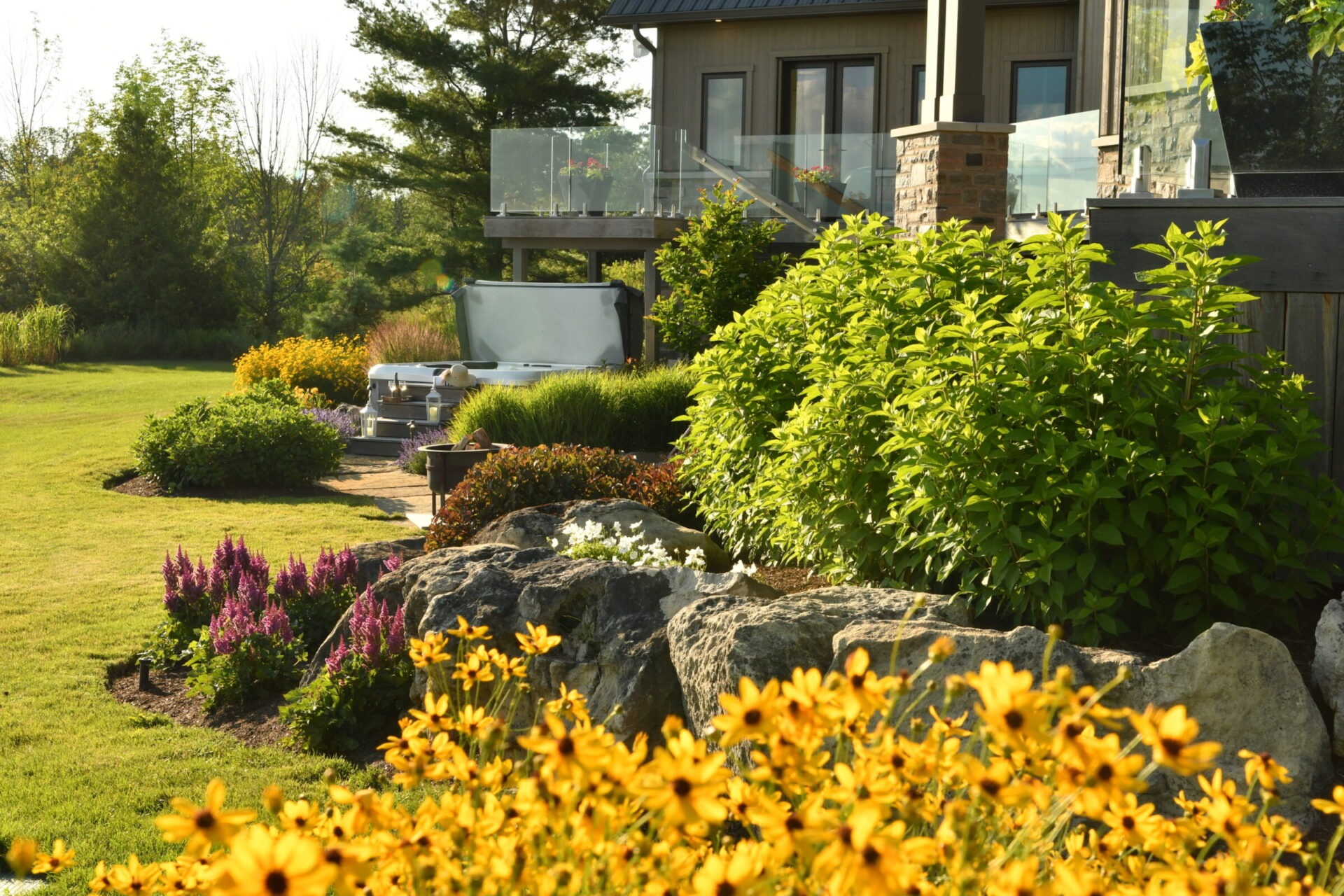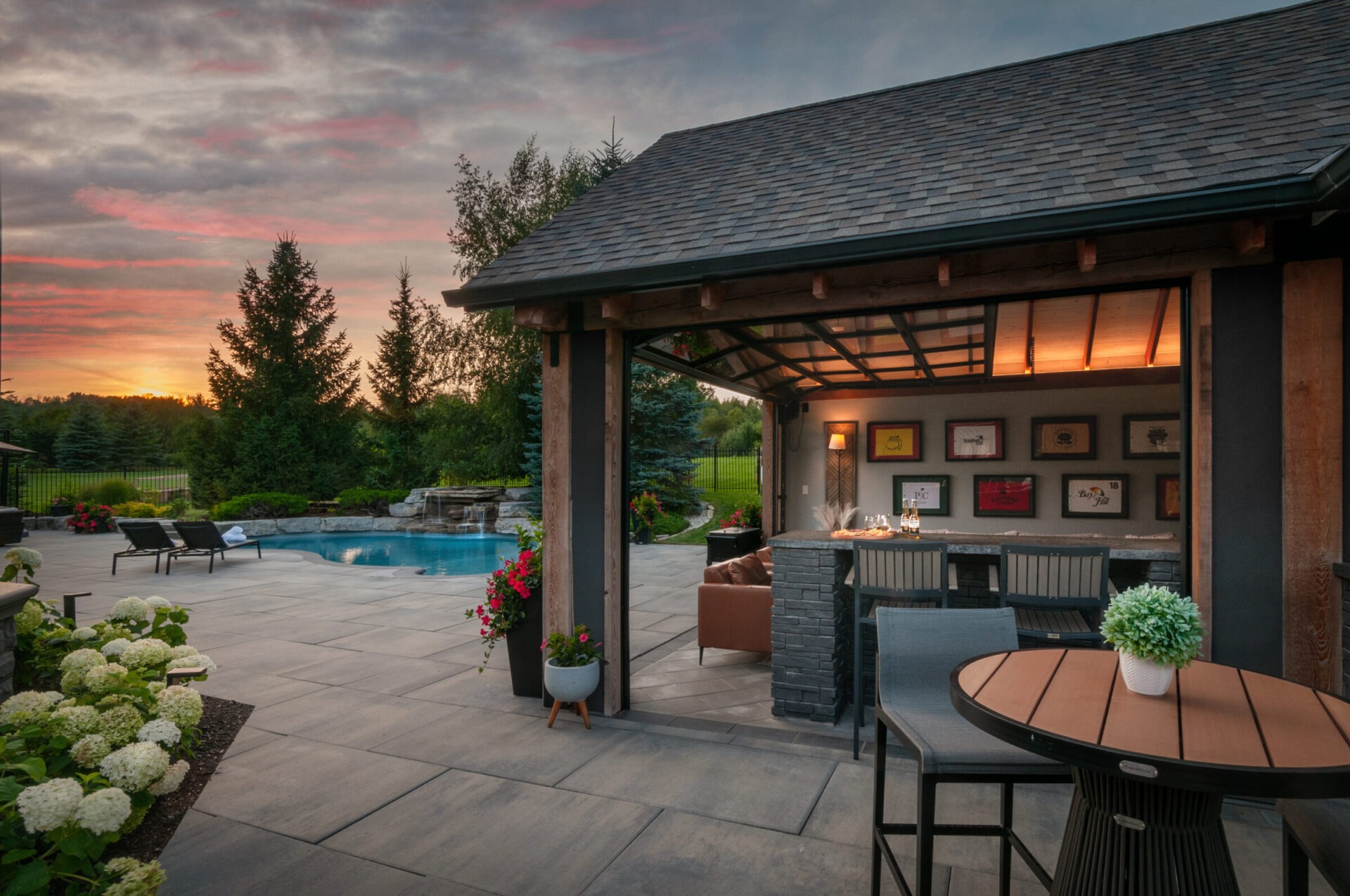The Ultimate Guide to Landscaping in Orangeville & Centre Wellington – DIY vs Professional Solutions

Landscaping in Orangeville and Centre Wellington isn’t just about sprucing up your yard; it’s an investment in your property’s aesthetic appeal and functionality. With its breathtaking landscapes and rich gardening culture, Ontario is a haven for both seasoned gardeners and homeowners who appreciate a beautiful outdoor space. Whether you’re working with a cozy backyard in Orangeville or a sprawling estate in Centre Wellington, landscaping allows you to express your style, improve your property’s value, and make your outdoor living experience more enjoyable.
However, DIY vs. professional landscaping services is a common question for homeowners in Orangeville and Centre Wellington, and it’s crucial to weigh the pros and cons of both approaches. From landscape design ideas to practical tips on choosing the right plants and materials, this guide will help you navigate the decision and provide practical advice to bring your landscaping project to life.
Local Insights: Landscaping in Orangeville & Centre Wellington
Before we dive into the comparison between DIY and professional landscaping, it’s essential to recognize the unique characteristics of the Orangeville and Centre Wellington regions. Both areas boast distinctive features that significantly influence landscaping choices.
Firstly, the climatic conditions play a crucial role. Orangeville typically experiences a humid continental climate, characterized by cold winters and warm summers, which affects plant growth and seasonal landscaping strategies. Similarly, Centre Wellington shares some of these climatic traits but may have slight variations that can impact local gardening practices.
Moreover, the soil types in these regions vary, with some areas containing clay or sandy soils while others may have more fertile loamy soils. This variety affects water drainage, nutrient availability, and overall plant health, making it vital for anyone planning landscaping in these regions to understand their specific soil composition.
By taking into account these unique environmental factors, individuals can make informed decisions whether to take on landscaping projects themselves or to seek professional assistance. Understanding how local conditions influence plant selection and landscaping techniques will significantly enhance the success of any outdoor project.
The Ontario Climate: A Foundation for Landscaping
Orangeville and Centre Wellington are located in zone 5 on the Canadian Hardiness Map. This climate affects everything from the choice of plants to the maintenance practices required for a healthy landscape. The growing season is shorter than in warmer regions, so it’s essential to focus on plants that can survive harsh winters and still bloom in the summer months.
In these areas, soil quality can vary, but it’s common to encounter clay-loam soils in many residential yards. Clay soils retain moisture, which is great for plant growth, but can lead to poor drainage. In Centre Wellington, especially along the Grand River, soil is often sandy or gravelly, which drains well but can leave plants struggling for nutrients. Proper soil preparation, including adding organic material like compost or topsoil, is essential for creating a thriving garden.
Sustainable Landscaping
Both Orangeville and Centre Wellington landscaping professionals have committed to sustainability in their communities, from water conservation initiatives to promoting native plant gardening. Local gardeners have embraced sustainable landscaping techniques like xeriscaping, which reduces water usage by incorporating drought-resistant plants and minimizing lawn areas.
This trend aligns with the Ontario government’s water conservation goals, especially considering the increasingly unpredictable weather patterns in the region. Sustainable landscaping practices not only help conserve resources but also reduce maintenance. By choosing plants that are adapted to the local climate, homeowners can reduce their reliance on irrigation and fertilizers while creating a beautiful, low-maintenance landscape.
DIY Landscaping Tips for Homeowners

There’s something deeply satisfying about getting your hands dirty and creating a garden with your own two hands. DIY landscaping can indeed be rewarding – not to mention cost-effective – for homeowners in Orangeville and Centre Wellington. Here we’ll cover some essential DIY landscaping tips to help you plan and execute your project like a pro.
Benefits of DIY
First, let’s acknowledge the appeal. Going the DIY route can save you money since you’re only paying for materials, not labour. It also offers a huge sense of accomplishment – it’s your sweat and creativity that built that beautiful patio or flowerbed. Plus, you’ll inevitably learn a lot along the way: researching plants, figuring out what grows best in Ontario’s zone 5 climate, and honing new skills. This learning experience can be fun if you enjoy gardening and want to become more knowledgeable.
That said, be realistic about the challenges of DIY landscaping. Larger projects can demand a lot of time and hard physical work – be prepared to devote weekends to digging, hauling soil, and planting. There’s also a knowledge curve: you’ll need to understand soil types, which plants thrive locally, how to plan for proper drainage, and how to avoid pests or plant diseases. Mistakes can happen if you’re inexperienced (for example, planting a sun-loving shrub in full shade, or not realizing how big that tree will get). But don’t worry – with some research and planning, you can avoid most pitfalls.
Ready to roll up your sleeves? Here are some tried-and-true DIY tips for landscaping your Orangeville/Centre Wellington property:
- Start Small: If you’re new to landscaping, begin with a small project or one corner of your yard. It’s tempting to overhaul everything at once, but focusing on a manageable area (like creating one garden bed or a little patio) helps avoid feeling overwhelmed. You can always expand your project next season once you gain confidence.
- Create a Plan and Budget: Treat your landscape like a mini renovation – plan before you plant! Sketch a layout of your yard on graph paper or use an app to plot where new features will go. Consider things like sun/shade patterns, views from your windows, and how you’ll use each space (relaxing, play area for kids, veggie garden, etc.). At the same time, set a realistic budget for materials and plants. Pricing out soil, lumber, mulch, and plants in advance will prevent costly surprises. Prioritize must-haves versus nice-to-haves if your budget is limited.
- Research Plants for Ontario: Choose the right plants for our Ontario climate and soil. This means selecting hardy perennials and shrubs that can survive zone 5 winters, and picking plants suited to the sun exposure and soil in your yard. Do you have a shady front yard or a full-sun backyard? Is your soil clay (stays wet) or sandy (drains fast)? Match plants accordingly. Native plants are a great choice for low-maintenance gardens – since they evolved here, they’re adapted to the local climate and pests. Keeping in mind that the “plants you see growing around you” are not the same as “native plants”. Some examples of true native plants include easy-care natives like Black-eyed Susans, Purple Coneflower, or Serviceberry shrubs for beautiful blooms and toughness. Also, aim for a mix of plants that provide colour across seasons (spring bulbs, summer perennials, fall mums or maples, winter evergreens) so your yard isn’t only attractive for one season.
- Prepare and Improve Your Soil: Before planting, get that soil in shape. Remove any sod or weeds in the area and dig in organic matter (compost or well-rotted manure) to add nutrients and improve soil structure. Good soil prep will help your new plants take root and thrive. In areas with heavy clay (common in parts of Orangeville), adding compost and a bit of sand can improve drainage. If you’re in a sandy spot, compost helps retain moisture for roots. Taking the time to prep soil up front makes a huge difference in how much maintenance you’ll need later.
- Mulch Your Beds: After planting, apply a layer of mulch (like shredded bark, wood chips, or straw) around your plants. Mulch does wonders – it helps keep moisture in the soil so you don’t have to water as often, it suppresses weeds, and it regulates soil temperature (protecting roots from extreme heat or cold). Plus, mulch gives beds a tidy, finished look. Keep mulch a couple of inches away from plant stems to prevent rot, and replenish it each year as it decomposes. Your future self will thank you when there are fewer weeds to pull!
- Water Wisely: New plants especially need regular watering until they establish roots. In Southern Ontario, it’s best to water in the early morning or late afternoon to reduce evaporation losses. Water deeply but infrequently – a good soak encourages roots to grow down, making plants more drought-tolerant. Consider using soaker hoses or drip irrigation to deliver water efficiently to the roots. It’s also a smart idea to group plants with similar water needs together (called “hydrozones”), so you don’t overwater drought-tolerant plants or underwater the thirsty ones. Once plants are established, you can ease off the watering and let rainfall do a lot of the work, especially if you’ve chosen native or hardy species.
- Think About Maintenance: A DIY landscape isn’t a one-and-done deal – you’ll need to maintain it. Keep up with regular tasks like weeding, pruning, and feeding your plants. It helps to create a simple maintenance schedule. For example, plan to weed and deadhead flowers every week or two during summer, mow the lawn weekly, and rake leaves in the fall. Stay on top of pests by checking your plants periodically; early intervention (like removing a few caterpillars or treating fungus spots) can prevent big infestations. If this sounds like a lot, remember that a well-designed landscape with the right plants in the right place will be pretty low-maintenance once it’s established. Native perennials or ornamental grasses, for instance, largely take care of themselves after the first year.
Professional Landscaping Services: What the Pros Offer

Taking the DIY route isn’t for everyone or for every project. Perhaps you have a grand vision for your yard that exceeds your time or expertise, or you simply want that wow factor with minimal stress. This is where professional landscaping services come into play. Orangeville and Centre Wellington are home to skilled landscaping companies (many are members of Landscape Ontario, the provincial industry association) who can help transform your outdoor space. Let’s explore the advantages of hiring a professional landscaper and what to expect.
Expertise and Local Knowledge: One of the biggest benefits of going with a pro is the depth of expertise they bring. Professional landscapers understand design principles and have experience planning cohesive, beautiful landscapes in our Ontario environment. An experienced local landscaper will know what kind of plants can survive, sparing you the trial-and-error of planting things that might not last. They’re also adept at solving site-specific challenges, whether it’s creating drainage solutions for a low spot, terracing a steep yard, or designing around that massive maple tree in your backyard.
Time Savings and Efficiency: If you’re short on time, professionals can be a lifesaver. Landscaping projects can be very time-consuming when you DIY – you might spend weeks or months chipping away at it. A professional crew, on the other hand, can typically complete projects much faster than DIY efforts. They have the manpower, tools, and efficient processes to get the job done in a fraction of the time it would take a homeowner on weekends. This means less disruption to your life, and you get to enjoy your new landscape sooner.
Access to Tools and Quality Materials: Professional landscapers come equipped with all the necessary tools and machinery. Tasks like grading a lawn, digging out tree stumps, or installing an interlocking stone driveway often require specialized equipment. Hiring a pro means you don’t have to rent or buy expensive equipment that you might use only once. They also have supplier connections to get quality plants and materials (sometimes at better prices). Moreover, a pro will ensure things are installed properly – for example, they’ll lay a correct base for pavers or choose the right grade of wood for a deck – which translates to longevity and durability in the finished project.
Design Creativity and Cohesion: If you’ve ever looked at a professionally landscaped yard and thought, “Wow, that looks straight out of a magazine,” it’s because of thoughtful design. Landscape designers are trained to create cohesive plans that consider colour, texture, scale, and seasons. They can complement your home’s architecture and maximize your yard’s potential. A pro can also incorporate special features you might not know how to execute – think pergolas, water features, smart features, landscape lighting, or irrigation systems. The result is often a more polished, higher-end look than a haphazard DIY approach. Skilled landscapers can craft a balanced, aesthetically pleasing design, elevating curb appeal and home value.
Warranty and Peace of Mind: Most reputable landscaping companies will stand by their work. They may offer warranties on certain installations (for instance, a year guarantee on plants or 2-5 years on hardscape workmanship). They also carry liability insurance. If something unforeseen goes wrong – say, a newly built retaining wall shifts, or a large tree they planted doesn’t survive – they’ll often address it at no extra cost to you. When you DIY, if something goes awry, fixing it is on you. With professionals, you get more peace of mind. Essentially, you’re paying not just for labour, but for assurance and reduced risk.
Comprehensive Services: Professional landscapers can handle everything from start to finish – the design, build, and even maintenance. Many offer design consultations or full landscape plans (some even provide 3D renderings so you can visualize the result beforehand). Once you approve a design, they handle all the heavy lifting: site prep, sourcing plants/materials, construction, planting, cleanup, etc. This turnkey approach is appealing if you want a hassle-free experience. For example, our team’s landscape design in Ontario can produce a detailed Master Plan for your property that maps out every patio, planting, and lighting element before a shovel even hits the ground. From there, the construction crews can precisely implement it. Even after the project, many companies offer ongoing garden maintenance services to keep your landscape in top shape year-round (mowing, pruning, spring/fall cleanups, etc.). If you travel a lot or just prefer not to do yard chores, having a pro maintain the finished landscape can be well worth it to protect your investment.
When to Hire a Pro: How do you decide if professional landscaping services are right for you? Here are some scenarios where calling in experts is usually the best choice:
- Large or Complex Projects: Planning a complete makeover of your property? Installing extensive hardscaping (patios, retaining walls, a new driveway)? Building a deck, pool, or outdoor kitchen? Big projects with many components benefit from professional oversight. Pros will ensure everything is built to code, structurally sound, and beautifully integrated. Large-scale designs, major grading or drainage work, and features like water gardens are best left to professionals who have the engineering know-how and crews to execute them.
- Limited Time or Physical Limitations: If you simply don’t have the time (or physical ability) to do the work, hiring a landscaper makes sense. Life is busy – between work, family, and other commitments, not everyone can devote long hours to digging trenches or laying stone. Don’t feel bad about that! Your time might be more valuable spent elsewhere. Hiring a pro lets you enjoy a great yard without sacrificing your weekends.
- Technical Expertise Required: Some aspects of landscaping require specialized knowledge – for example, installing an irrigation system with proper water pressure and zoning, or designing a landscape that diverts water away from your foundation. Professionals have the training to handle these technical details. They’ll also navigate any permits or regulations (for instance, if you’re excavating near property lines or planting near utility easements). Projects involving electrical work (outdoor lighting), plumbing (sprinklers, ponds), or heavy construction require professional help for safety and compliance.
- Desire for High Quality & Property Value: Sometimes, landscaping can raise property value by 10–15%. If you’re preparing to sell your home or you want the nicest yard on the block, a landscape contractor can help you achieve that polished look that DIY might not. Think of it as an investment – not only do you get to enjoy a stunning yard now, but it could pay off later if you sell. Professionals will design with long-term growth and value in mind, choosing plants and materials that age well and enhance the architectural features of your home.
- Maintenance and Ongoing Care: Maybe you’re fine with the initial DIY planting, but not so keen on the continuous upkeep. Many landscaping companies offer lawn care and garden maintenance plans. You can outsource tasks like lawn mowing, hedge trimming, fertilizing, and fall leaf cleanup to them. This is especially useful for folks with large properties or those who travel often. A well-maintained landscape looks great and prevents little problems from becoming big ones (like weeds taking over or shrubs growing out of control). Hiring professional lawn care services can keep your yard in peak condition and save you the headache of weekly chores – all while you reap the benefits of a gorgeous outdoor space.
Professional landscaping services in Orangeville & Centre Wellington are there to make your life easier and your yard spectacular. The friendly experts at local companies will work with you to realize your vision, whether that means collaborating on a design you can install in phases or handling every detail from blueprint to final mulch. It’s worth getting a consultation (many offer them free or at a nominal cost) to see what ideas a pro might have for your space. Even if you love DIY, you might be surprised at the creative solutions and efficiencies a professional can bring.
Landscaping Ideas for Ontario

Whether you choose to tackle your landscaping project yourself or hire professionals, you’ll need to gather some inspiration. Here are some landscaping ideas that are perfect for homeowners in Ontario:
1. Modern Outdoor Living Spaces
As mentioned earlier, many homeowners today prefer outdoor living spaces. You can transform your patio, backyard, or balcony into a fully functional outdoor room with durable materials like concrete, wood, or stone.
Adding features such as outdoor kitchens, fireplaces, or outdoor seating areas can make your yard feel like an extension of your home. These features can add real value to your property while giving you more usable space for entertaining, relaxing, or enjoying nature.
2. Sustainable Landscaping Practices
For those interested in reducing their environmental footprint, consider sustainable landscaping options like rain gardens, mulching, and permeable paving. These practices help with water conservation and drainage while maintaining a healthy and attractive yard.
3. Water Features and Pondless Waterfalls
Adding a water feature like a pond, fountain, or pondless waterfall can create a tranquil environment in your yard. The sound of running water adds an element of peace and relaxation, and these features often become the focal point of a garden or backyard.
Water features can suit any space when designed properly, from small garden fountains to larger ponds that support fish and plants. They can also be easily maintained with filtration systems to keep the water clean and fresh.
Landscaping in Orangeville You Can Count On
Deciding between DIY landscaping and hiring a professional is a personal choice that depends on your project’s budget, timeline, and complexity. For homeowners in Orangeville and Centre Wellington, there are many opportunities to create beautiful and functional outdoor spaces, whether you go the DIY route or hire an expert.
DIY landscaping is perfect for homeowners who want to save money, get hands-on, and create something uniquely theirs. However, for larger projects, more intricate designs, or when time is limited, professional landscaping services offer expertise, efficiency, and high-quality results.
Whatever you decide, remember that your landscaping journey is an investment in your property and your outdoor enjoyment. So, whether you’re planting a garden on your own or trusting the pros to build your dream backyard, enjoy the process, and take pride in the beautiful space you create!
Contact us today to explore how we can help you make your next project a success.
Tags:
